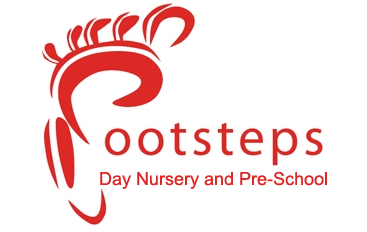
Internet Safety
Today, children grow up learning how to use technology just like learning how to speak or walk. Touchscreen technologies have made the internet far more accessible than it used to be. At Footsteps internet safety is a hot topic, and one which we take very seriously. It is important for children to learn to be e-safe from an early age and we ensure that we play a vital part in starting this process. We talk to the children regularly about safe ways to use the internet during our computer time and also using other learning resources, stories and activities. You can have a look in detail at our policies and procedures on internet safety here.
It’s true, pre-schoolers don’t usually get exposed to as many risks as older children as they are usually using the internet under the supervision of an adult. However, that doesn’t mean parents shouldn’t also take certain practical internet safety precautions. Even if your child goes online to play games or watch videos, they are still at the risk of accessing inappropriate content. The Internet is a fantastic source of fun and learning, but it’s worth following some simple tips to help your children stay safe online:
- Always sit with young children when they use the Internet.
- There are plenty of safe places for children to play and learn. Why not check out child friendly search engines like Swiggle, or Kiddle and children’s versions of popular sites like YouTube Kids.
- You can adjust browser settings and filters to protect children from unsuitable sites. Internet safety organisation Internet Matters has an interactive guide to setting parental controls across your whole house.
- It is always a good idea to keep the computer or tablet in a family room or a place you share rather than a bedroom.
- Talk to your child about how to stay safe and let them know they can come to you if they find themselves in any sort of trouble. Always allow the opportunity to share any worries or concerns about things they see or hear online.
- Remember – your actions and what you share online also play a big part in your child’s online safety. Consider carefully the impact of anything you share on your own social media networks about your child, and think about whether what your post could identify them to strangers, compromise their safety, humiliate them, or cause them distress now or later in life.
Using apps on mobiles and tablets
Lots of children now use apps on smartphones and tablets. Some devices come complete with a ‘child mode’ that can prevent little ones from accidentally leaving the app they’re using and coming across other things accidentally. Child safety ‘locks’ are also available as downloadable apps for mobile devices.
Be aware that some apps for children have ‘in app purchases’ that allow money to be spent to progress to another level or get extra features to the game. Depending on your device, you can often add parental controls which mean that the app will have to ask for a password before a purchase can be made.
On some devices, you can even set up a child profile that will only allow your child to download free apps and games, and will prevent any in-app purchases, even within free games.
The internet should not be a frightening place, if we can encourage safe use from an early age then we can ensure the safety of our children as they approach their teenage years and beyond.
For any queries please don’t hesitate to contact a member of the team.



